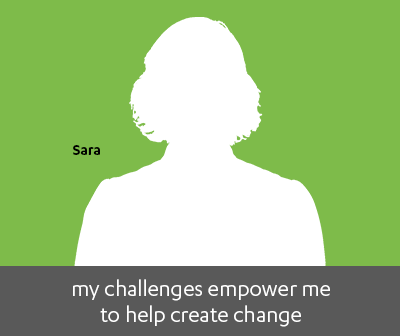How has mental illness impacted your life?
Mental illness nearly took my life. I have hit rock bottom on more than one occasion – stressing my career, finances, relationships, housing, family, friends, and more. I have been ill for 15 years and I am honestly not sure how my body and mind have survived all I have put them through.
What is the biggest misconception about mental illness?
The biggest misconception I find, is that people have control over their illness/symptoms at all times. Also, if the illness is chronic, they are often seen as treatment-resistent, hopeless, noncompliant, or not wanting to get better.
What needs to happen to end the stigma and shame associated with mental illness?
Massive education programs. More people need to speak out about managing their illness and maintaining a normal life. If the nurses I work with knew what I had been through and what I do to keep myself well, they may see the face of mental illness differently.
Why should people (who think they are unaffected) care about mental illness?
Nobody is unaffected by mental illness. If a person thinks they aren’t affected, the problem is not mental illness, it is ignorance.
What would you say to someone who is suffering from mental illness and doesn’t know where to turn?
Reach out. To anyone. Keep reaching out. Don’t stop if you don’t get the response you need. Keep trying.
What has helped you manage your mental illness?
A combination of caring case workers, counsellors, support groups, day treatment, inpatient treatment, medication, doctors, and unconditional support from family and friends. Another thing is that people were not afraid to tell me what I was going to lose and what price I was paying by not actively engaging in recovery attempts.
What gives you hope for your mental illness?
I know how bad it gets, but I know it gets better. It may still fall apart again, but it can be fixed again.
Questions and comments:
Living as a nurse with a mental health history of depression, anxiety, eating disorders, PTSD, and borderline personality disorder is challenging. There is stigma everywhere I turn. But ultimately, my challenges and experiences help me relate to people in a more sensitive manner and empower me to help create change – and that is what we need.
More support is needed, please donate.
Share this:



